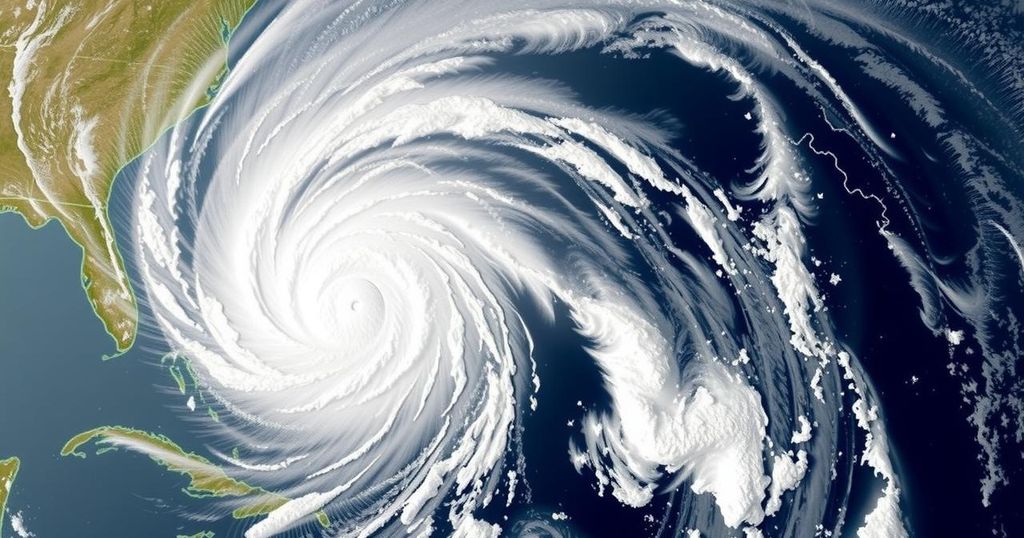Cyclone Chido Devastates Mayotte, Moves Toward Africa’s East Coast

Cyclone Chido has devastated Mayotte, resulting in fatalities and extensive damage to infrastructure as it approaches mainland Africa. Thousands face risks, and neighboring nations are bracing for similar impacts. This highlights ongoing challenges from climate change-related cyclones in the region.
Cyclone Chido has wreaked havoc in the French territory of Mayotte, resulting in multiple fatalities and significant infrastructural damage, as officials have reported. The storm, characterized by winds exceeding 220 kilometers per hour (136 miles per hour), has devastated public facilities, including the local hospital and airport. French authorities have commenced rescue operations and have deployed numerous officers to assist and prevent looting.
French Interior Minister, Bruno Retailleau, expressed concerns over the potential death toll, saying, “We are afraid the toll will be high, but for the moment I cannot give any figures.” The extent of the destruction on Mayotte, which is home to approximately 300,000 individuals, includes widespread power outages and the destruction of homes and essential facilities. French President Emmanuel Macron is closely monitoring the recovery efforts, emphasizing the unprecedented severity of the cyclone since 1934.
As Cyclone Chido continues on its path toward mainland Africa, neighboring Comoros has also been impacted, prompting authorities to issue high alert warnings. The cyclone is anticipated to reach Mozambique imminently, where forecasts suggest that up to 2.5 million individuals may be affected. Countries like Malawi and Zimbabwe are preparing for potential flooding and evacuations due to the anticipated aftermath of the cyclone.
In recent years, the region has experienced a series of devastating cyclones exacerbated by climate change, which poses grave humanitarian challenges, particularly for economically disadvantaged nations that contribute minimally to climate change. The repercussions of Cyclone Chido could lead to further health crises, as stagnant waters following these storms increase the risk of waterborne diseases such as cholera, dengue fever, and malaria.
Authorities remain vigilant as cyclone season progresses, urging affected populations to seek safety and implement emergency measures for their protection.
Cyclones pose a persistent threat during the December to March cyclone season in the southeastern Indian Ocean, with a growing frequency and intensity attributed to climate change. Southern Africa has faced various severe cyclones in recent years, with notable events such as Cyclone Idai in 2019 and Cyclone Freddy in 2022 resulting in thousands of deaths and widespread devastation. Countries like Mozambique, Malawi, and Zimbabwe, which face geographical vulnerabilities, often bear the brunt of these catastrophes, leading to significant humanitarian crises.
In summary, Cyclone Chido has caused substantial harm in Mayotte, with the prospect of adverse effects extending to mainland Africa. As officials work to assess the damage and assist affected populations, the ongoing threat of climate-related disasters underscores the urgent need for effective disaster response strategies in vulnerable regions. The situation continues to develop as authorities prepare for the cyclone’s impact, emphasizing the importance of preparedness and community safety.
Original Source: www.cnn.com







